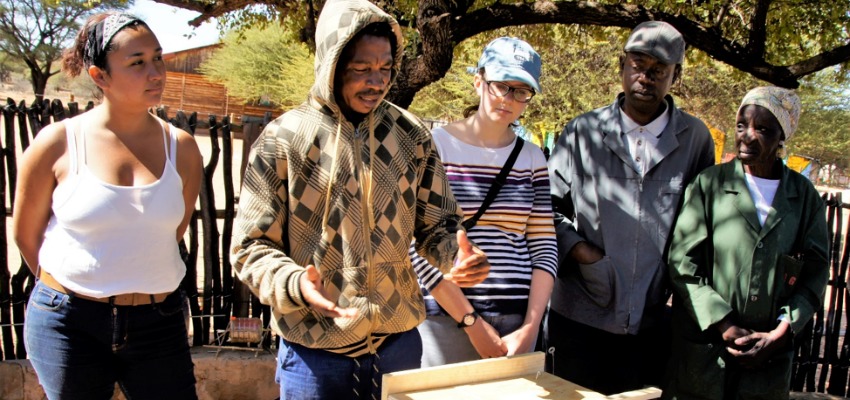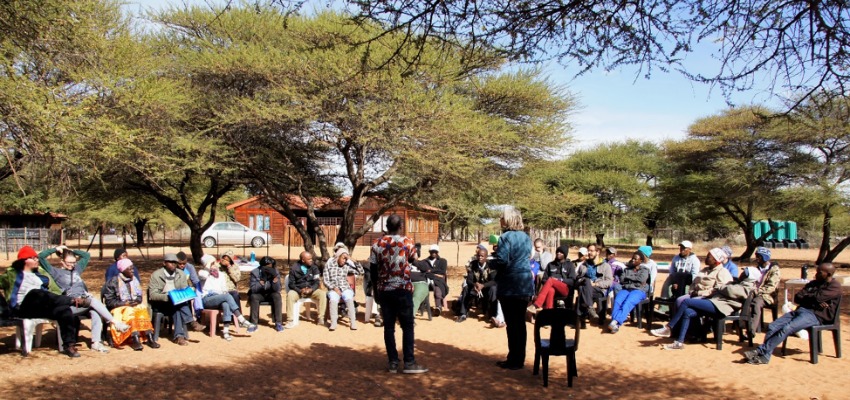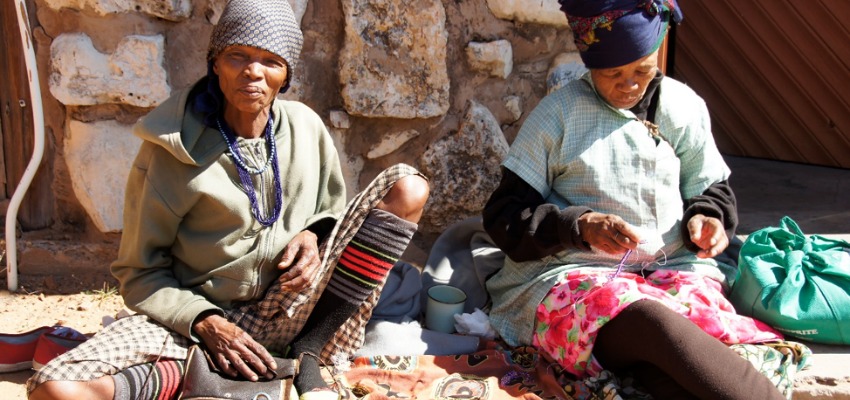
"My favorite part of the summit so far has been having the opportunity to facilitate a multi-lingual, multi-cultural, and multi-disciplinary team of four people as they design a machine for making elephant repelling briquettes."
Hello! This is Ta, a D-Lab alumna, and I’m writing from D’kar, a beautiful San village in the middle of the Kalahari Desert in Botswana. Collaborating with MIT D-Lab and IDIN and their partners has taken me to many surprising and extraordinary places – this experience deserves a prize for the most exciting and unexpected: in the past two weeks I’ve mixed elephant dung and chili powder, crafted beads out of ostrich shells, and eaten worms by a fire.
Since July 15th and until August 13th, I am part of a team of 14 spectacular organizers at IDDS Botswana 2018, a hands-on summit that focuses on improving the livelihoods of rural communities through the creation of grassroots technologies and their supporting business models. This is the 3rd time that Thabiso ‘Blak’ Mashaba and his social enterprise These Hands are bringing IDDS to Botswana, and with it, 30 days full of co-creation, internet-free interactions, hands-on fabrication, start-watching, multi-lingual translation, and lots of IDDS spirit!

My favorite part of the summit so far has been having the opportunity to facilitate a multi-lingual, multi-cultural, and multi-disciplinary team of four people as they design a machine for making elephant repelling briquettes. This project was proposed by Arthur Lefiteko Khamba, one of the participants from Kaputura, a village near the Okavango Delta, where the free-herding elephant population is very high and often causes damages in human settlements. Arthur, along with Pihelo, Anna, and Leene have already built their first prototype of a press for making briquettes out of elephant dung and chili powder. The team will be traveling to the village of Rakops, to do user research for their product.
There are seven other teams at IDDS Botswana working on projects for four different villages: at a paper bag maker and a deep-sand wheelbarrow in D’kar, a peanut roaster and elephant dung paper in Kaputura, a dough mixer and a bean thresher in Dutlwe, and our travel partners for the community visit to Rakops who are working on hydroponic fodder.

My other favorite part of the summit has been being able to learn more about the Naro-speaking people of D’kar. On Day 1, we learned about local indigenous knowledge through a session on how to make arrows, ostrich eggshell beads, rope and glass-bead jewelry making from the village’s elders Tabaxae, Ncabe, Xaiga, and Innovation Center managers Komtsha and Nico. Ancestral knowledge on healing practices, hunting with arrows and spears, and the arts are still an important part of the San Society, although many (like hunting) are not commonly practiced nowadays.

I’m looking forward to spending the next week in Rakops, collaborating with the awesome Badisa Ntlape, IDDS instructor, facilitator, and the Rakops Innovation Center manager. If you want to stay tuned to what we are up to, follow us on social media, @TheseHandsGSSE on Facebook and Twitter, or using the #IDDSBotswana2018.

